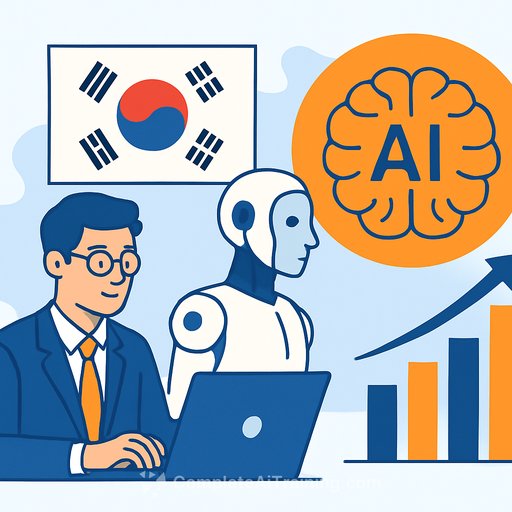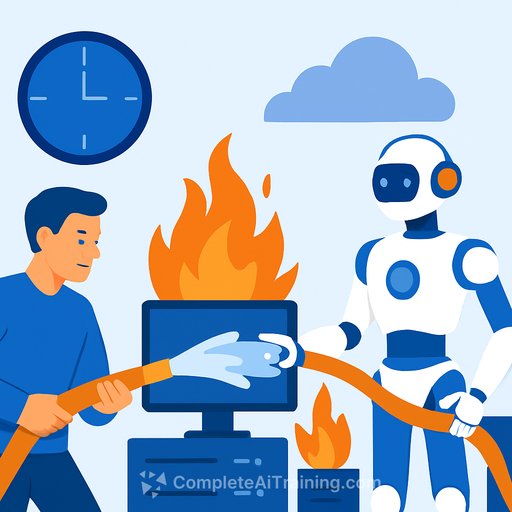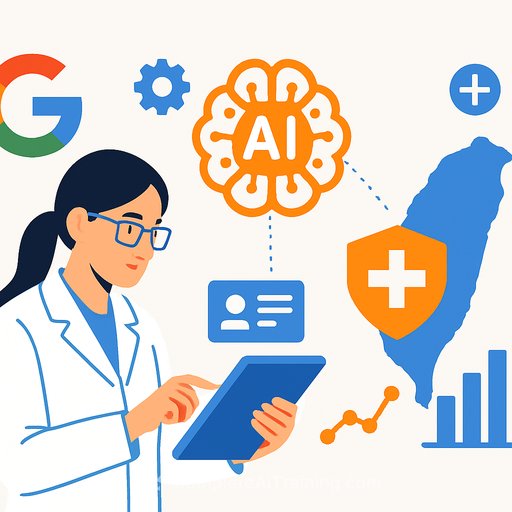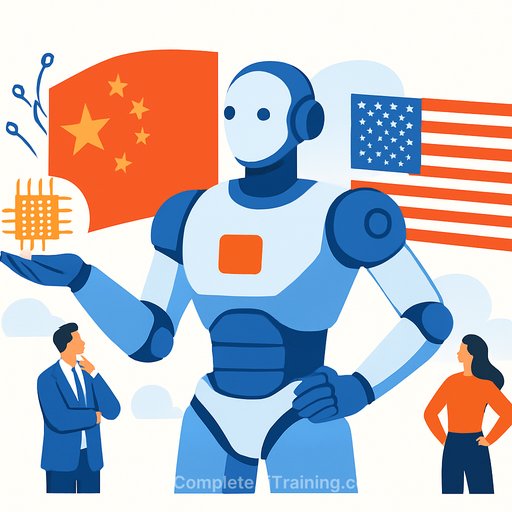South Korea commits ₩1.4T to AI talent in 2026 - what it means for IT, development, and the UK
Publication date: 25/11/2025
South Korea plans to invest approximately ₩1.4 trillion (about US$1 billion) in 2026 to develop advanced AI talent. The plan targets 11,000 high-level AI specialists, expands AI education across generations, and supports the country's push to become a "top 3 global AI power" by building on new infrastructure and talent pipelines.
This sits within a broader budget expansion for AI and digital transformation. The signal is clear: deeper skills, bigger bets, faster deployment cycles.
What's in the plan
- Train 11,000 high-level AI specialists in 2026.
- Expand AI education across age groups to grow the overall talent base.
- Align skills development with national goals to be a "top 3 global AI power."
- Link skills to new infrastructure and industry demand as part of a wider digital budget expansion.
Why this matters for IT and development teams
Expect tighter competition for senior AI talent in East Asia and more aggressive hiring/talent retention policies. Companies that lag on upskilling will feel it in delivery speed, quality, and hiring costs.
- Hiring: Plan for hybrid models (onsite + remote), academy-style onboarding, and clear growth paths for AI engineers and MLEs.
- Partnerships: Build relationships with Korean universities, labs, and vendors ahead of 2026 cohorts.
- Upskilling: Move beyond ad-hoc learning. Stand up structured training for LLM workflows, RAG, evaluation, MLOps, and safety.
- Compute and data: Align training plans with your infra, data governance, and model lifecycle.
Implications for the UK
Heavier focus on AI at Korean universities may reduce emphasis on arts and social sciences locally. That could push more students in those subjects to the UK, where these fields are already popular with South Korean students.
Engineering, technology, and computer science interest could rise too, but only if the UK is seen as strong and credible in AI. Since these subjects are not currently top five for South Korean students in the UK, universities will need to promote their AI leadership or risk losing students to the US or China.
Actions for UK universities and tech companies
- Showcase AI strengths with clear outcomes: research impact, industry projects, placements, and alumni success.
- Co-develop bilateral programs and short-term exchanges with Korean institutions and labs.
- Offer targeted scholarships and industry-integrated capstone projects.
- Stand up stackable micro-credentials that map to real roles: ML engineer, data engineer, AI product manager, MLOps.
- Align marketing to student goals: employability, portfolio quality, and exposure to real data and production systems.
Where to find collaboration and funding signals
Monitor calls for proposals and international collaborations via the National Research Foundation of Korea's notices: NRF News & Notices - Call for Proposals. New 2026 initiatives may open windows for joint labs, dual degrees, or co-funded research.
Practical next steps for teams
- Run a skills audit across engineering, data, and product. Set specific targets for 2026.
- Spin up an internal AI learning path covering prompt patterns, evaluation, retrieval, agents, orchestration, and monitoring.
- Prioritise 2-3 high-ROI AI use cases that you can ship and measure in quarters, not years.
- Build a hiring pipeline for the 2026 graduate wave and define apprenticeship-style roles.
- Track policy and funding updates; prepare one-page concept notes for fast submission when calls open.
Need structured upskilling?
If you're formalising internal training, these resources can help your team move faster:
- Latest AI courses for engineers, data teams, and product leads.
- Courses by job role to map learning to responsibilities and delivery goals.
Bottom line
South Korea's 2026 push will expand the global AI talent pool and intensify competition at the top end. Use the next two quarters to lock in training, partnerships, and hiring plans so you're ready when this wave hits.
Your membership also unlocks:





